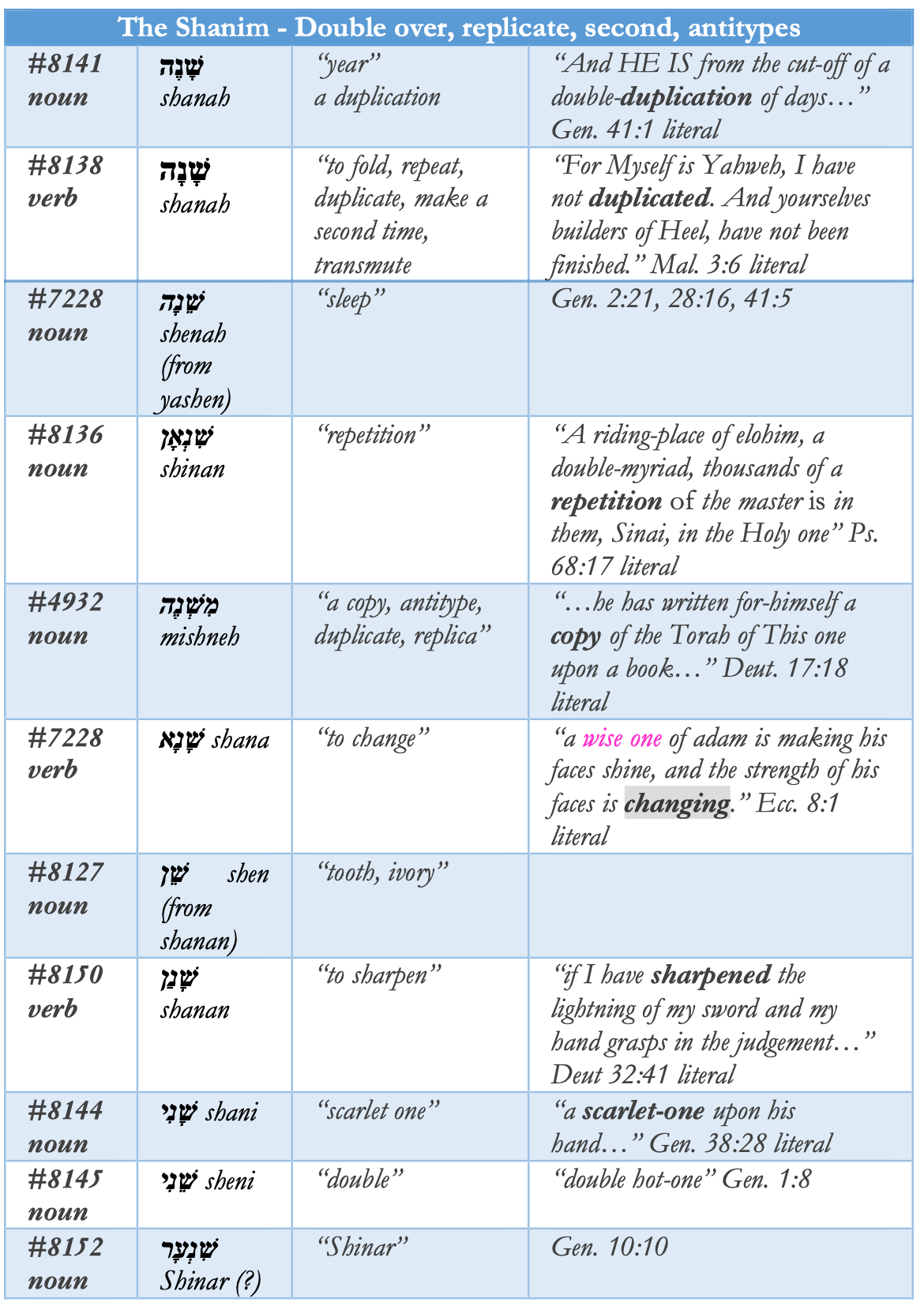 Genesis 1:14
Genesis 1:14

Cut Asunder by A Curse
And mighty ones is saying, "He is a curse within the Beaten Expanse of the dual heavenly ones, to divide between the Day and between the Night, and they have become signs, and appointed times, and days, and twofold!"30And God will say there shall be lights in the firmament of the heavens to separate between the day and between the night: and they shall be for signs and for set times, and for days and for years.
And God said, Let luminaries be in the expanse of the heavens, to divide between the day and the night. And let them be for signs and for seasons, and for days and years.
And God said, “Let there be lights in the expanse of the heavens to separate the day from the night. And let them be for signs and for seasons, and for days and years,
And God said, Let there be lights in the firmament of the heaven to give light upon the earth, to divide between day and night, and let them be for signs and for seasons and for days and for years.
Footnotes
| 29 | A Curse A curse [מארת] of Yahweh is within the House of the wicked, but he is blessing the home of the just ones. Yahweh is sending within yourself the self eternal curse [המארת], the self eternal Confusion, and the self eternal Rebuke... Hebrew יהי מארת. (ye-hi me'eraṯ). "me'erat" translates to "a curse" or "imprecation". It is feminine. Even the previous interpretation as "lights" modifies the word into a feminine plural me'erot. It also creates a subject-verb disagreement in number, i.e. "it is lights." This is an unusal phrase given that the verb "to be" here is in the masculine singular "he is." The accurate literal rendering without any funny business is "he is a curse" or "he is becoming a curse." Previous translations ignored the subject-verb disagreement with מארת as a plural "lights." The disagreement in number was apparently of no great issue to anyone. "It/He is lights." Jussive/cohortative senses are nowhere indicated in the consonantal Hebrew, although the ה suffix can sometimes be treated as such in a dialogue context. Gesenius's Hebrew Grammar on the subject is wholly reliant on the vowel pointing of the 6th-10th centuries. They are conjectured from context. Furthermore, "let there be" is imperative language, or even like a command. The verb used is not imperative, but rather an imperfect/incomplete "is being/becoming." The same Yahweh seems to know the difference, and uses the imperative "Live!" in Ezekiel 16:6 when commanding life: ואמר לך בדמיך חיי "and he spoke to yourself, Live!" The lexicons give Strong’s #3974, מָאוֹר maor. light, luminary. Masoretes added the vowel point representing the letter וֹ to the word: מאֹרֹת. A crafty way to steer it toward the traditional context. In the following verse the proper construct is written for "luminaries": מאורת (me'orot). One letter makes a huge difference. Did the author make a mistake by not writing מאוֹר? See Strongs #3994 מארה. a curse (singular feminine noun) and the root Strong's #779, ארר, to curse. |
| 30 | The Hebrew ושנים (ve'shnayim) translates to "and two". It is a masculine plural. How did they turn this into a feminine plural "years"? The word for year is feminine shanah. The masculine שנים means "scarlet ones/scarlet threads" or "twofold." The prepostion to/for which also acts as an accusative preposition, is present on all the words except shnayim. If it was meant to be "years" surely there would have been a preposition "for/to years" also? Strong’s #8141, shanah. This is the word for "year" and it is feminine. The plural of shanah would be שנות shanot. There is a strong correlation between "two" and "year" however. Noun derived from verb #8138, shanah, to repeat, fold, duplicate, transmute (change to higher form).
|
